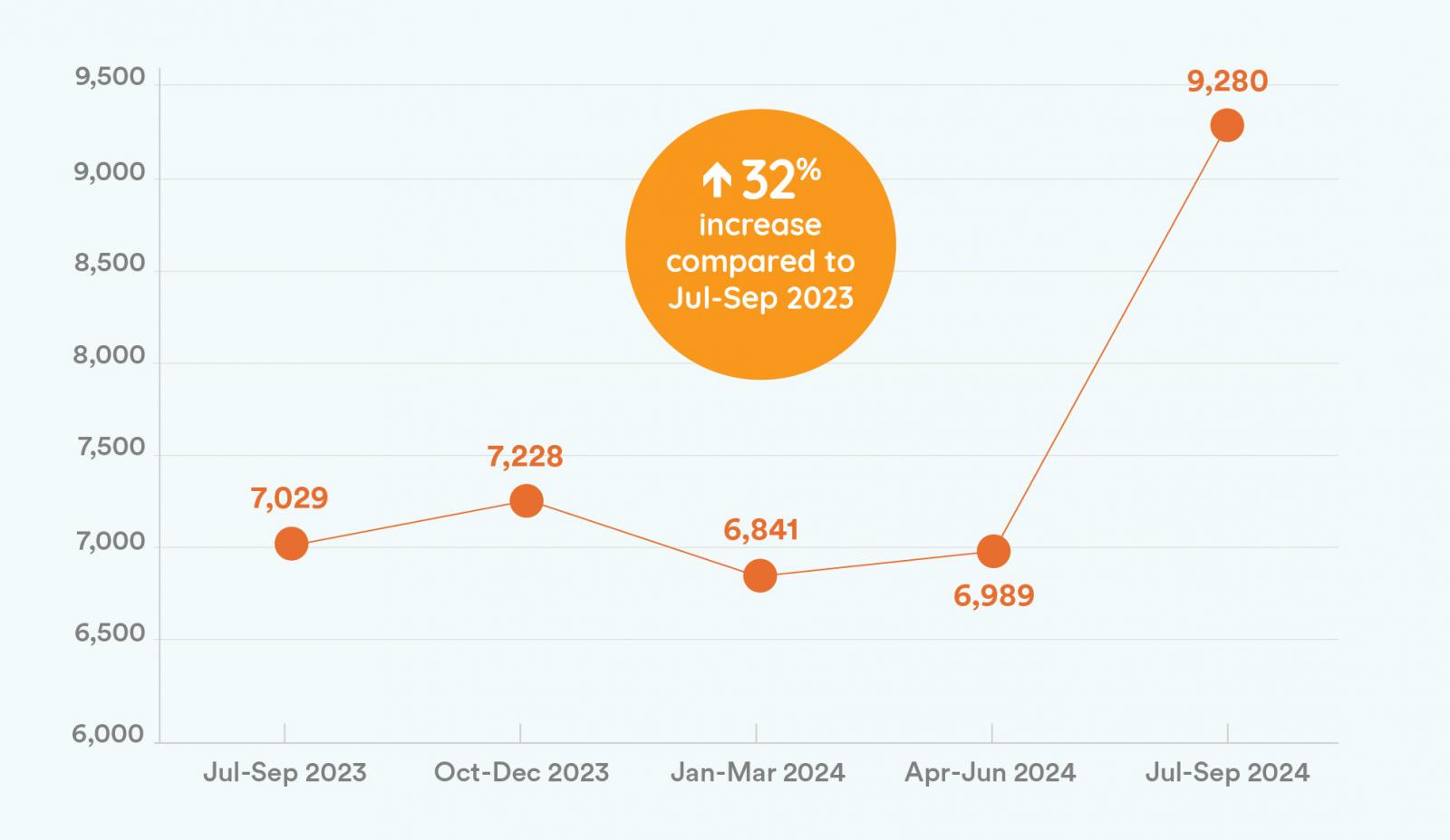EWON is contributing to codesigning resources to ensure victim-survivors have access to electricity, gas and water
EWON has a critical role to play in assisting victim-survivors of family violence when this is revealed to us during our dispute resolution process. We are also in a unique position to provide case insights to regulators and providers to improve outcomes and consumer protections for victim-survivors.
In May 2023 new protections came into effect in NSW placing obligations on energy retailers to better support customers impacted by family violence. It has been over 12 months since the protections were implemented. However, EWON continues to receive complaints from victim-survivors who are:
- unaware of debts because they have no control over the accounts
- unable to close accounts after they leave the home
- facing debt collection activity or a credit listing
- at risk of disconnection.
In November 2023, EWON released a customer factsheet Experiencing family violence? Help is available that explains the assistance energy providers must offer customers impacted by family violence and provides a range of referrals. This has been well received by stakeholders and EWON members.
Over the past few months EWON has taken part in workshops and provided case insights to consultations for the Safety by Design project. This project is a partnership between the Essential Services Commission of Victoria and other key leaders in family violence and economic abuse support. The partnership aims to develop better practice guides for energy and water businesses to support consumers who are experiencing family violence. It also aims to highlight tactics used by perpetrators, investigate potential risks in the systems of energy and water businesses and prevent these products and services from being weaponised against victim-survivors.
The case studies below highlight some of the issues that customers continue to raise with EWON, even with the additional family violence protections in place.
Case studies
 Customer unable to close electricity account for seven years
Customer unable to close electricity account for seven years
A customer vacated her supply address in 2017 and contacted her electricity retailer to close the account. She asked the retailer to open an account at her new property and continually requested the closure of her previous account to ensure there was no outstanding balance in her name.
In May 2023 the retailer finally confirmed the account was closed. There had been long periods of no contact with the customer and the retailer had spent time investigating the customer’s claim that the account had been set up fraudulently. However in January 2024 the customer was told that there was over $15,000 outstanding on the old electricity account. The retailer said that all bills had been sent by post and it had not been able to disconnect the supply for nonpayment. She requested a copy of the bill to be emailed to her.
The customer contacted the retailer in February 2024 and was told that the amount was payable immediately, and that it had not been able to close the account because it could not obtain a final meter reading. She thought this was unreasonable as she had requested that the account be closed in 2017.
The complaint was initially referred to a specialist team at the retailer to try to resolve directly with the customer, however the customer returned to EWON for further assistance because she had not been contacted.
The retailer told EWON that the customer thought the account had been established fraudulently. It had reviewed voice recordings from when the account was established and from recent calls with the customer and confirmed that it was from two different customers. The retailer offered to backdate the account closure to October 2022, the date it had a record of the customer first contacting to close the account, reducing the balance from $16,611 to $11,410.
In our discussions with the customer, she advised that she had left the property due to family violence and that she had had no control over accounts at the property. She was made aware of the account through a family violence service, which was when she had attempted to close the account. The customer advised that she could provide documents to show that she was living in a different state at the time.
With the customer’s consent, EWON provided copies of the documents to the retailer and disclosed the circumstances about her vacating the property. The retailer backdated the account closure to 2017, with no account balance for the customer to pay.
 Customer unaware of account balance at risk of disconnection
Customer unaware of account balance at risk of disconnection
A field officer attended the customer’s property at 8.30am to disconnect her supply. She contacted EWON and said due to her circumstances she had not received any disconnection notices. She said she had found a bill with a balance of over $8,000, but could not afford to pay the full amount and would like to go on a payment plan.
The customer explained she was a survivor of family violence and required electricity for oxygen. She had never seen a bill as they had previously been hidden from her. Her partner was no longer at the property.
EWON contacted the retailer to request information. The retailer advised that it had established a payment arrangement of $300 per fortnight in September 2021, however no payments had been received. The customer did not receive any concessions on her bills as her details had been rejected. The retailer said it had attempted to contact the customer and sent reminder notices to her by email and SMS, however had not been unable to reach her.
EWON explained the customers circumstances and requested that the retailer attempt to validate the customer’s concession details again. The customer had contacted a community agency to obtain EAPA and had established a Centrepay payment of $40 per fortnight.
The retailer was able to verify the concession, which was then backdated for 12 months. The retailer also advised there was a better plan available which it would backdate to December 2023. This would reduce the account balance from $8,493 to $8,029. The retailer said that due to the customer’s circumstances, it would waive 20% of the account balance by applying an additional credit of $1,605 to the customer’s account.
EWON wrote to the customer to provide her with the details of the outcome and to advise her to contact the retailer to confirm the payment arrangement with the affordability assistance program team.
Family violence policies in the water sector – protections for owners and tenants
In the last 12 months we have contributed to water sector consultations aimed at improving family violence protections.
In submissions to the Sydney Water and Water NSW Operating Licences, we recommended that protections be aligned with energy sector rules that protect customers affected by family violence.1 We recommended expanding the types of relationships where abuse may occur, including to carers, or relationships established under Aboriginal and Torres Strait Islander kinship rules.
IPART adopted our recommendation for both operating licences which came into effect on 1 July 2024. Sydney Water is required to update its family violence policy by 30 November 2024, and WaterNSW to implement one by 1 July 2025.
In recommending alignment with the energy sector and other water providers we are pleased to see that IPART has included the requirement that family violence policies:
- have provisions for identifying customers and consumers experiencing family violence, and processes for protecting a customer’s information
- have provisions for victim-survivors of family violence to nominate their preferred method of communication, including when they can be contacted
- have processes for referrals to local specialist support services
- provide access to payment assistance options for residential customers
- require the water provider to publish information about family violence policies on its website and provide information to customers annually with their bills.
In August 2024, IPART consulted directly with EWON regarding potential changes to Sydney Water’s 2024-2028 reporting manual about customer and consumer complaints. We recommended Sydney Water consider reporting on the number of consumers experiencing vulnerability, particularly family violence (including tenants who are not direct customers of Sydney Water). IPART adopted this recommendation.
 Retailer gives customer wrong information
Retailer gives customer wrong information Retailer continues flat price plan after meter exchange
Retailer continues flat price plan after meter exchange



